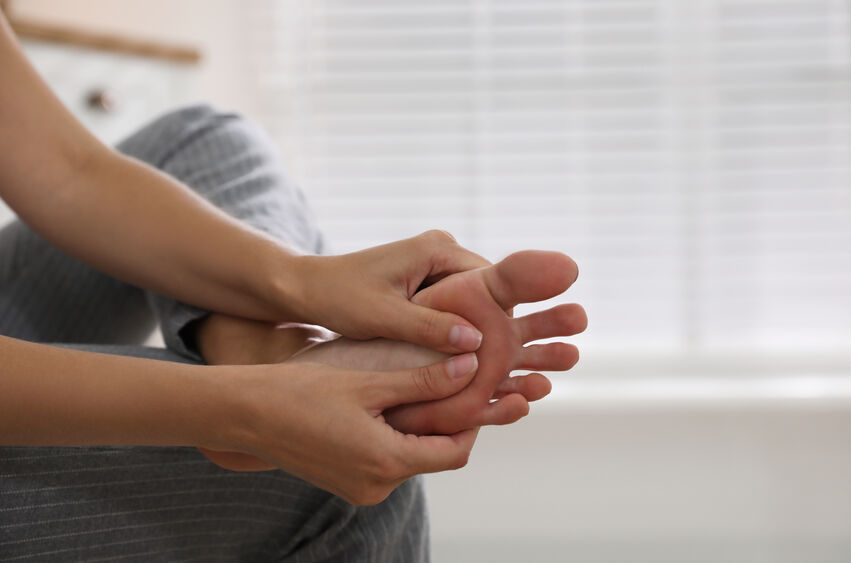
Are your feet swollen, smelly, or itchy, and you don’t know why? It could be a sign of a thyroid problem. Hypothyroidism is a disorder in which your thyroid gland can’t make enough of some particular essential hormones. It doesn’t always show obvious symptoms in the early stages, but it can result in several health issues over time if left untreated. And because January is Thyroid Awareness Month, today, Dr. Eric Ricefield, Dr. Mark Yagodich, and Dr. Aliza V. Eisen of greater Philadelphia’s Your Next Step Foot and Ankle Care Center share several foot issues that may be signaling a thyroid problem.
- Bloated feet:Diabetes, skin infections, heart disease, and kidney dysfunction are some typical issues to be considered when a patient’s feet and legs swell, but the probability of hypothyroidism should also always be taken into account.
- Dry cracked feet with calluses: Research has revealed that most people with hypothyroidism reported rough, dry, coarse skin, especially on their feet, often accompanied by calluses.
- Foot pain and cramping: Nerve, muscle, or joint pains are not usually the main symptoms of hypothyroidism, but you should complete thyroid testing on each person with chronic pain or fibromyalgia.
- Smelly feet:One of the more common symptoms of hyperthyroidism is serious sweating (including the feet), and the sweat serves as a breeding ground for bacteria that can make feet smell bad.
- Scratchy feet:Tingling or itchiness can appear all over the body (not just the feet), including the legs, genitalia, and scalp triggered by dry skin.
- Yellowing of the soles of the feet: An accumulation of beta-carotene in the outer layer of the skin, including the palms of the hand and soles of the feet, creates a yellow appearance.
- Changes in the toenails:Too little or too much thyroid hormone can result in abnormalities of both the fingernails and toenails.
- Cold feet: If thyroid function reduces, circulation decreases and the skin often receives as little as one-fourth to one-fifth of its normal blood supply. Our lower extremities, particularly our feet, are susceptible to poor circulation during the colder seasons.
- Foot Infections:Susceptibility to infections of the fingernails, toenails, feet, and hands develops in hypothyroidism and hyperthyroidism, including Athlete’s foot and fungal infections.
Your feet can expose a lot about the health of your thyroid, often years before a diagnosis. To find out if your thyroid is causing issues with your feet, don’t hesitate to make an appointment with one of the experts at greater Philadelphia’s Your Next Step Foot and Ankle Care Center. Click here to locate the office nearest you.
